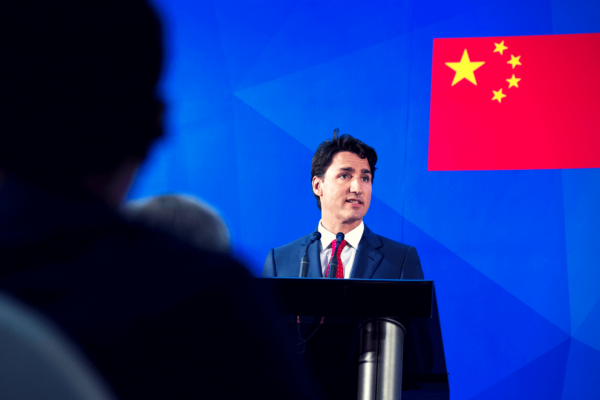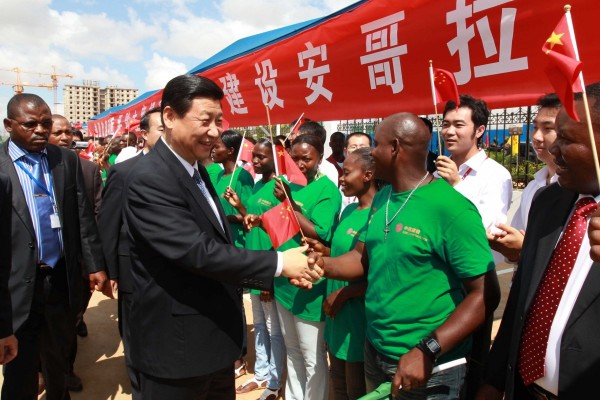-

Why the Anglosphere is united in an anti-China front
Recent sabre-rattling over China arises out of an embedded military network known as the “San Francisco” system. Constructed in the aftermath of the Second World War, the network of bilateral alliance was designed to thwart decolonization and assure the Pacific would become an “American Lake.” To this day, the US maintains hundreds of military installations and tens of thousands of troops in the region.
-

The settler colonial origins of the Five Eyes alliance
The Five Eyes spy network was established in 1948. Conventional histories portray its formation as the natural culmination of years of wartime collaboration in the fight against fascism. What that story conceals, however, is the common lineage of these countries as settler colonial states formed through the dispossession of Indigenous peoples.
-

A red under every bed? Canada, racial profiling, and the Five Eyes
Far from enhancing Canadian security, CSIS and the Five Eyes are enmeshing this country in a campaign of disinformation and propaganda regarding China reminiscent of the McCarthy era in the United States when government agencies went on a witch hunt against anyone who dissented from US foreign policy. No one should be left alone to take on this formidable arm of settler colonialism.
-

Huawei and the US ‘pivot to Asia’
A few years ago, Huawei was on its way to becoming a household name in Canada through its sponsorship of the ever-popular “Hockey Night in Canada” broadcast by Rogers Communications. Huawei smartphones were becoming competitive with Apple and Samsung devices. And Bell and Telus had been partnering with Huawei in deploying their high-speed networks. So, what went wrong?
-

Is the fight for the Kumtor gold mine drawing to a close?
The nationalization of the Kumtor gold mine has made Kyrgyz President Sadyr Japarov powerful enemies within Centerra and the Canadian government, which continue their legal attacks on the country while Japarov increases his presidential powers. As the optimistic January 2022 deadline approaches, there is little indication the hostility that has characterized the Kumtor negotiations will subside in the coming weeks.
-

Afterlife of the Meng Wanzhou affair
Amid the wreckage of wars in Iraq and Afghanistan, the United States and its allies have turned their sights on China. University of Victoria professor emeritus and historian John Price examines the rise of the coalition of Anglo settler colonial states of Canada, the United Kingdom, the US, Australia, and New Zealand, and how they are today fomenting war in the Asia Pacific.
-

China in the world
China’s position in the world system is a crucial aspect of the friction between the nation and Western countries like Canada and the United States. It’s important, therefore, for people who want to alleviate these tensions—and keep them from devolving into a hot war—to understand China’s role in the global economic and political system, writes CD columnist Greg Shupak.
-

Views on China
What is the experience and future for China and its Communist Party rule? It seems appropriate to consider a number of new books on China that have been published that try to answer this question. In this review, Michael Roberts takes a closer look at Isabella Weber’s How China Escaped Shock Therapy, John Ross’s China’s Great Road, and China’s Engine of Environmental Collapse by System Change Not Climate Change co-founder Richard Smith.
-

Noam Chomsky warns of ‘very dangerous’ US antagonism of China
Renowned linguist, author and dissident Noam Chomsky last week condemned the Biden administration’s aggressive anti-China foreign policy, while dismissing the imperialist notion that Beijing poses a threat to the United States and urging a departure from the “provocation” that for decades has characterized the US stance toward the rising economic and military superpower.
-
Reducing conflict with China an environmental necessity
Arms manufacturers and militaries utilize propaganda to hype Chinese military power to rationalize expenditures on weapons of war. This gobbles up public resources required for a just transition away from fossil fuels. Whatever lies and exaggerations the militarists may pedal, it’s the Western-led military–industrial complex we should be most worried about—and the environmental movement needs to confront this reality head-on.




